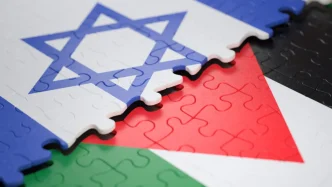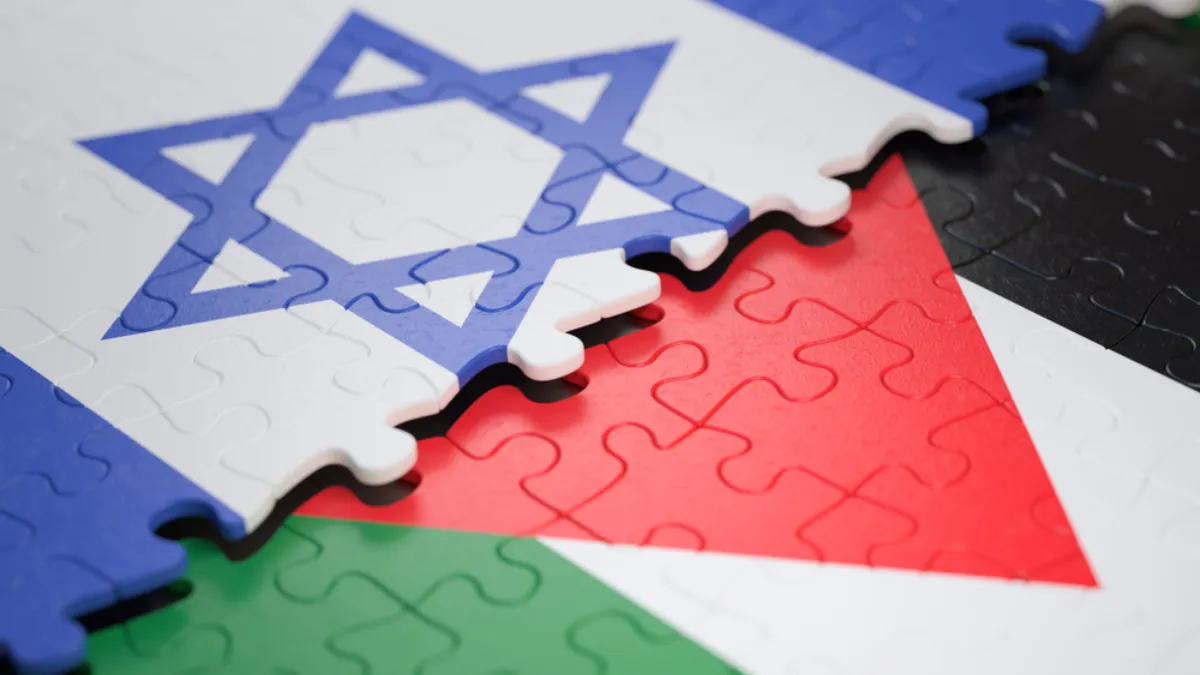The Philippine government has reiterated its longstanding commitment to the two-state solution as a framework to resolve the Israeli-Palestinian conflict, emphasizing the need for peaceful coexistence between Israel and Palestine. This position was reaffirmed by Malacañang on June 27, 2025, amid growing international calls for action to address the humanitarian crisis in Gaza. The statement comes as the Philippines seeks a non-permanent seat on the United Nations Security Council, prompting discussions about its potential role in advocating for peace in the Middle East.
A Consistent Stance on Peace
During a press briefing in Manila, Palace Press Officer Claire Castro underscored the country’s unwavering support for the establishment of two independent states—Israel and Palestine—living side by side with mutually recognized borders. “Ang Pilipinas po ay laging sumusuporta sa two-state solution” (The Philippines has always supported the two-state solution) said Castro, highlighting the government’s alignment with the UN Charter and relevant Security Council resolutions. She also called for uninterrupted humanitarian aid to Palestinians, stressing the importance of ensuring that assistance reaches those in need without hindrance.
Castro’s remarks followed a statement by Palestinian Ambassador to the Philippines Mounir Anastas, who urged the Philippine government to leverage its cordial relations with Israel to push for respect of humanitarian concerns in Gaza and the West Bank. Speaking in an exclusive interview with GMA Integrated News, Anastas noted the timeliness of such efforts, especially given Manila’s bid for a Security Council seat. “We hope that since the Philippines has good relations with Israel, is to apply some pressure on Israel in order that Israel respect the humanitarian question in Gaza especially and in the West Bank as well” he said.
While Castro deferred specific responses to Anastas’s comments to the Department of Foreign Affairs (DFA), her affirmation of the two-state policy reflects a consistent thread in Philippine diplomacy. Earlier in January 2025, during the 3rd Follow-up Meeting on the Global Alliance for the Implementation of the Two-State Solution in Oslo, the DFA reiterated this stance. Ambassador to Norway Enrico T. Fos emphasized that both Israelis and Palestinians deserve a future where their rights, aspirations, and security are upheld. “The Philippines yearns for a Middle East where peace and stability reign, where a diversity of peoples living together in peace, where peoples who have lived in insecurity for several generations, will finally be able to live together in peace and security” Fos stated.
Humanitarian Concerns and International Pressure
The renewed focus on the Israeli-Palestinian conflict comes against the backdrop of escalating violence and a deepening humanitarian crisis in Gaza. Reports from international outlets such as Reuters and BBC indicate that thousands of civilians have been displaced, with access to basic necessities like food, water, and medical care severely restricted. The Philippines, through its consistent contributions to the United Nations Relief and Works Agency for Palestine Refugees (UNRWA), has sought to play a supportive role in alleviating these challenges. As Ambassador Fos noted in Oslo, Manila recognizes UNRWA’s critical function in delivering life-saving aid.
Ambassador Anastas’s appeal for the Philippines to exert diplomatic pressure on Israel underscores a broader expectation for middle-power nations to mediate in protracted conflicts. The Philippines, with its history of advocating for peaceful resolutions—seen in its role in regional disputes in the South China Sea—could potentially serve as a voice for moderation. However, analysts caution that Manila’s influence on Israel may be limited, given the complex geopolitical dynamics and the deep-rooted nature of the conflict. “The Philippines can express solidarity and push for humanitarian considerations, but direct impact on Israeli policy remains uncertain” said Dr. Maria Lopez, a political scientist specializing in Middle East affairs at the University of the Philippines.
Broader Implications of the Two-State Solution
The two-state solution, long endorsed by the international community, envisions the creation of an independent Palestinian state alongside Israel, with borders based on pre-1967 lines and mutually agreed adjustments. It also involves contentious issues such as the status of Jerusalem, the right of return for Palestinian refugees, and security arrangements. While the framework has been central to peace negotiations for decades, progress has stalled, with both sides citing violations of trust and ongoing violence as barriers.
For the Philippines, supporting this solution aligns with its broader foreign policy of promoting dialogue and multilateralism. Manila’s bid for a non-permanent seat on the UN Security Council, if successful, could amplify its voice on such global issues. The country has previously served on the Council during terms in 1957, 1963, 1980-1981, and 2004-2005, often focusing on peacekeeping and conflict resolution. A new term could provide a platform to advocate for humanitarian access in conflict zones like Gaza, though it would require navigating the delicate balance of maintaining relations with both Israel and Palestinian authorities.
Public sentiment in the Philippines, as reflected in recent discussions on social media platforms like X, shows a mix of concern for Palestinian civilians and recognition of Israel’s security challenges. Posts from Filipino netizens often highlight the need for compassion while acknowledging the complexity of achieving lasting peace. This mirrors the government’s cautious approach, which seeks to avoid taking sides while emphasizing universal principles of human rights and dignity.
Challenges in Translating Rhetoric to Action
Despite its clear stance, the Philippine government faces practical challenges in translating its support for the two-state solution into tangible outcomes. Unlike major powers with direct stakes in the Middle East, such as the United States or members of the European Union, Manila’s diplomatic leverage is constrained by geographic distance and limited economic ties to the region. While the country maintains an embassy in Tel Aviv and hosts a Palestinian diplomatic mission in Manila, its role has largely been confined to symbolic gestures and humanitarian aid contributions.
Moreover, domestic priorities—ranging from economic recovery to territorial disputes in the South China Sea—often take precedence over distant conflicts. “The Middle East is important, but it’s not at the forefront of most Filipinos’ daily concerns” noted Dr. Lopez. “The government’s statements are principled, but without a concrete strategy or resources, they risk remaining aspirational.”
One potential avenue for impact lies in regional and international coalitions. The Philippines is a member of the Association of Southeast Asian Nations (ASEAN), which has collectively expressed concern over the situation in Gaza and called for adherence to international humanitarian law. By aligning with ASEAN’s position, Manila could contribute to a unified regional voice, potentially influencing broader UN discussions. Additionally, its ongoing support for UNRWA could be expanded, providing a direct channel to assist Palestinian civilians caught in the crossfire.
A Forward-Looking Role
As the crisis in Gaza continues to unfold, the Philippines’ reaffirmation of the two-state solution serves as a reminder of the enduring need for international solidarity in addressing one of the world’s most intractable conflicts. While Manila’s capacity to effect change may be limited, its consistent advocacy for peace and humanitarian access underscores a commitment to global norms of justice and coexistence.
The road ahead remains fraught with uncertainty. With violence persisting and diplomatic efforts faltering, the international community—including smaller nations like the Philippines—faces the challenge of moving beyond rhetoric to foster meaningful dialogue. As the country campaigns for a seat on the UN Security Council, its stance on the Israeli-Palestinian conflict could shape perceptions of its readiness to tackle global issues. For now, the question remains: can the Philippines, alongside other nations, help pave the way for a future where peace in the Middle East is not just a distant hope, but a tangible reality?
















